Digital control systems
Instructor: Claudia Califano
Course web page:
www.diag.uniroma1.it/~califano/DCS_MCER.htm
Credits: 6
Infostud code: 1041428
Objectives
The course provides methodologies for the analysis of linear and nonlinear discrete time and sampled dynamics, the design of digital controllers with a major focus on linear systems, and implementation on embedded microcontrollers. The student will be able to compute digital models of given discrete time systems as well as digital discrete time equivalent models of continuous dynamics, to design digital control laws both for discrete and for continuous systems and to use standard microcontrollers for their implementation.
Program
The main concepts for the mathematical representation of linear discrete time systems and sampled ones are introduced, and the methodologies for their analysis in the time domain and in the z-transformed one are presented. The effects of the sampling and reconstruction actions on the signals are discussed. The concepts of transfer function, frequency response, and stability (with associated criteria) are recalled for discrete time systems. Design requirements for a digital controller are discussed. Various design approaches (of indirect or direct type) such as discretization of continuous time control laws, root locus methods, frequency design in the complex domain, analytical design techniques (pole/zero assignment, finite time response, deadbeat) are then presented. The synthesis of digital PID regulators is addressed. Mathematical representations of nonlinear discrete and sampled time systems are introduced and analyzed and some control approaches are illustrated. Application examples will be used to test the different techniques.
Type of exam: Written test, Oral test, Project
Reference text
- G.F. Franklin, J.D. Powell, and M.L. Workman, "Digital Control of Dynamic Systems," Addison-Wesley, 1998

